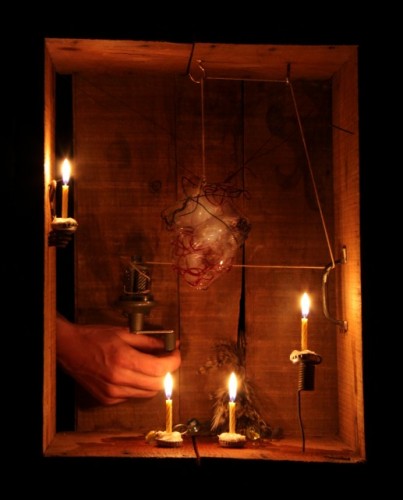We Are One
One year ago today, The Seattle Star posted our first article. A reflective look back, on our anniversary.
Reclaiming Elitism
Thoughtful communities should always value judgment over opinion. Popularity is not a judgment and should never concern anyone thinking about what is beautiful. Push come to shove, I will always encourage what is beautiful over what is popular.
Things I Did Not Write About in 2012, Part 1
As publisher, for the most part I have been happy with our evolving aesthetic and our presentation. As a writer, however, certain things have resisted publication not by design but by oversight or simply through lack of time. While everyone else in the world is assembling fairly meaningless lists about the past year, I figured this would be a good time for a redress.
The Ghastly Impermanence: An Interview with David Pownall
Displaying an immense range of knowledge and interests, his radio plays run the diapason of thematic concerns. Yet whatever his subject be, Mr. Pownall’s plays are distinctive and brilliant. They reveal the deft hand of a master who truly believes in the power of a medium often in danger of being reduced to radio gaga and triviality.
The Ghastly Impermanence: Paper Radio
Professor Guralnick’s analysis is text-based. There is nothing inherently wrong with this. However, one can go too far.
The Ghastly Impermanence: In the Genes – The BBC Genome Project
When it comes to audio drama, BBC rules the roost. Like it or not, BBC remains the largest producer of audio drama in the English language, if not the world. To discuss audio drama at all, one has to deal with the BBC and their chokehold on the history of the field.
Loss Machine and the Magic of the Banal
Here, as the magician clearly shows his tricks, the purpose is to prevent the audience from simply falling in love with effects by making the audience pay attention to their cumulative structure. Not “How’d he do that?” but rather, “What will he do next?”
Verbalists Audio: November Reading
Audio recording of the Verbalists storytelling group, recorded live 10 November, 2012.
The Ghastly Impermanence: Sight Unseen
Giving Prof. Guralnick the benefit of fair doubt, I believe her goal in writing the book is to expand the audience for radio drama by proving its link to stage drama, to discuss playwrights who are best known for their stage work, rather than playwrights who write specifically for radio. I cannot argue against her choice of material. What I will argue is that the approach probably confirms more biases than it dispels.
Except where otherwise noted, the content on this site is licensed under a Creative Commons Attribution 4.0 International License.









